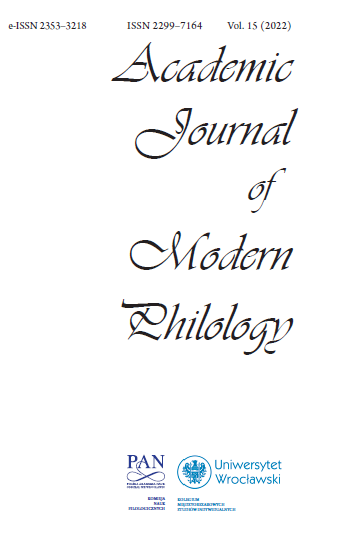denk an Pasolinis »verzweifelte Leere von Casarsa«”: Considerations on the Influence of Spanish Mysticism and of Pasolini’s »Friulian« Poems on Peter Handke’s Noch einmal für Thukydides and Versuch über die Jukebox
denk an Pasolinis »verzweifelte Leere von Casarsa«”: Considerations on the Influence of Spanish Mysticism and of Pasolini’s »Friulian« Poems on Peter Handke’s Noch einmal für Thukydides and Versuch über die Jukebox
Author(s): Alessandro PulimantiSubject(s): Comparative Study of Literature, Austrian Literature, Other Language Literature, Cultural Anthropology / Ethnology, Theory of Literature
Published by: Komisja Nauk Filologicznych Oddziału Polskiej Akademii Nauk we Wrocławiu
Keywords: Peter Handke; essay on the Jukebox; Once Again for Thucydides; Pier Paolo Pasolini; poems in Casarsa; comparative method; ethno-anthropological perspective;
Summary/Abstract: The aim of this paper is to reflect on Handke’s reception of Spanish and Friulian traditions. The first part of this paper will mention Miguel de Cervantes’, Teresa of Ávila’s and John of the Cross’ influence on Handke’s works, while also focusing on Handke’s fascination with the Spanish tradition and Pasolini’s works through the use of the comparative method. Pasolini’s vision of modern cultural customs is also taken into consideration in Handke’s Essay on the Jukebox, where clear references to Spanish authors also appear. The same occurs in Handke’s Glowworm Epopee, where Pasolini’s critical view of the “vanishing of the fireflies” indirectly shines throughout a tribute to the Poems in Casarsa. In the second section, an anthropological perspective will be employed, seeing as Handke’s ‘mysticism’ can be said to have drawn inspiration from the Romantic motif of “Mother Holle” (Höller 2013). In this regard, Ginzburg’s (1989) and Nardon’s (1999) studies will be used to assume Handke’s attachment to Friulian folk topics dating back to the 17th century. As opposed to Handke’s reception of Pasolini’s critical views and of Spanish mysticism, the influence of Friulian ethno-anthropological aspects on the Carinthian author’s works still needs to be demonstrated and its study improved.
Journal: Academic Journal of Modern Philology
- Issue Year: 2022
- Issue No: 15
- Page Range: 267-278
- Page Count: 12
- Language: English

